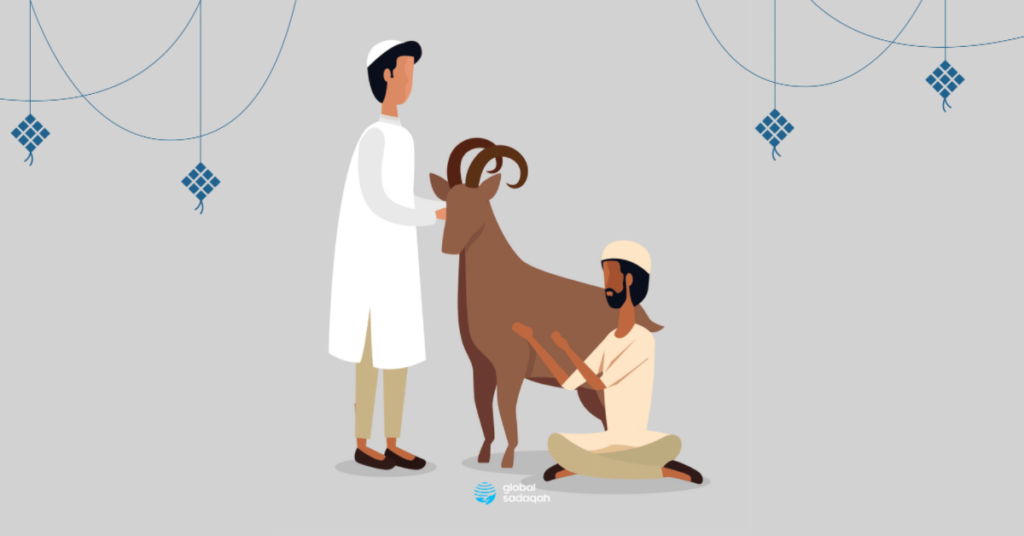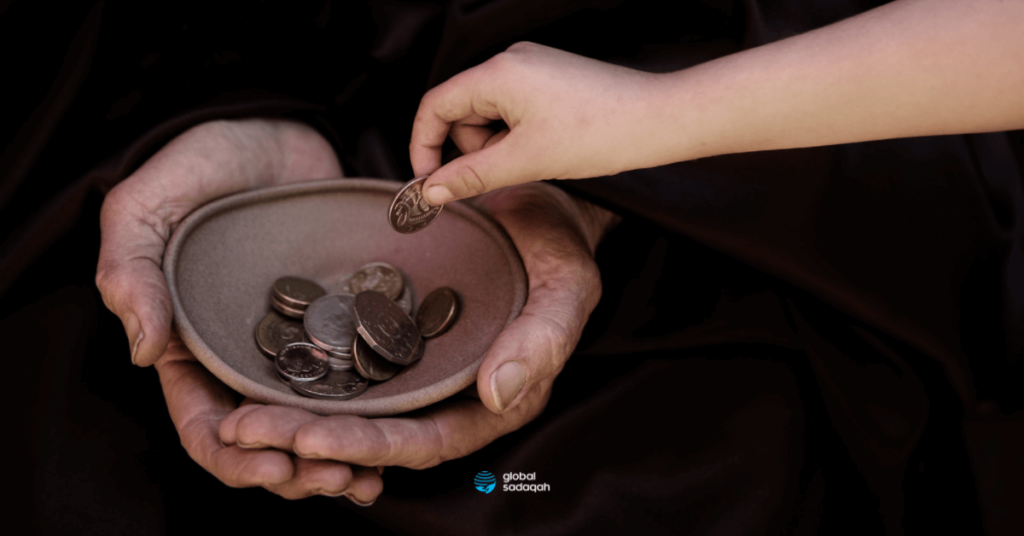Generally, we have heard of Sadaqah but do we know that Sadaqah can be categorised into Sadaqah Wajibah (compulsory), Sadaqah Jariah (sunah) and etc? In our previous post we talked about the impact of sadaqah on society, and today we will be focusing on Sadaqah Wajibah and its five types.
Sadaqah Wajibah is compulsory and therefore similar in some ways to zakat. While zakat does promise to alleviate the sufferings of most, it is a ritual that has become associated with the holy month of Ramadan. Sadaqah Wajibah must be spent on the same eight categories of beneficiaries as zakat, however, there is no condition for them to be Muslim.
Related: 11 Hadiths about Sadaqah
Types of Sadaqah Wajibah

Let’s talk about the different sub categories of this sadaqah. There are five different types of sadaqah wajibah, allow us to explain them briefly as follows:
1) Sadaqah Fitr
The purpose of sadaqah fitr is to make sure that all sections of the society have the means to enjoy the festivities of Eid ul fitr. It is a charity that must be paid before the Eid prayer, but ideally, it should be given a few days before Eid, so that everyone has enough time to celebrate Eid well. It must be noted here that sadaqah fitr can be paid by the head of the family on behalf of the entire family. However, the total amount calculated should be per head.
2) Fidyah
Suppose that you cannot pray or fast because of an illness or you went on the pilgrimage of hajj but made a minor mistake. How do you make up for these unavoidable circumstances and mistakes?
Allah says:
وَعَلَى الَّذِينَ يُطِيقُونَهُ فِدْيَةٌ طَعَامُ مِسْكِينٍ
“For those who can do it (With hardship), is a compensation, the feeding of one that is indigent.” [Trans. 02:184]
By paying Fidyah, a type of sadaqah wajibah that must be paid to make up for the small mistakes or missed opportunities. The amount that must be paid as a Fidyah for the aforementioned offenses and mistakes must be equivalent to at least 1.6kg of wheat.
3) Nadhr

Imagine you made a promise or took an oath that if you get a difficult project, you will donate a substantial amount of money to charity. That is what Nadhr is, a conditional charity that one imposes on oneself. Remember that once the oath is taken, one must honour it. If they are unable to uphold the oath, and there is another form of sadaqah that must be paid to make up for that, we will discuss it in the next point.
4) Kaffarah
This sadaqah is applied in various situations such as if a person breaks a fast intentionally or breaks an oath; Kaffarah would then be a binding form of redemption. Kaffarah is the compensation that you should pay if you deliberately miss or break a fast in the month of Ramadan without a valid reason. To expiate for the intentionally broken fast, a person must fast continuously for 60 days. If they are unable to do that, then they have to feed 60 poor people for each intentionally broken fast.
According to a narration by Abu Huraira:
A person came to our beloved Prophet Muhammad (PBUH) and said, “O the Messenger of Allah, I am ruined.” The Prophet Muhammad (PBUH), asked what happened. He said that he had broken the Ramadan fast intentionally. The Prophet (PBUH) told him to free a slave. When he said that he had no slave, he ordered him to fast for two months incessantly. When he said that he was unable to do so, he told him to feed poor people.”
5) Udhiyyah

This is also known as Qurbani or sacrifice. It is compulsory upon all mature Muslims who, on the day of Eid al-Adha possess Nisab (good wealth). One may slaughter goats or sheep, which constitute one sacrifice each, or one may slaughter a larger animal (such as a cow) which will be counted as seven sacrifices each.
“Neither the flesh (of the sacrificed animals) nor their blood reach Allah. But, it is your taqwa (piety and sincerity of heart) which reaches Him. Convey glad tidings to the sincere ones.” [Qur’an, Surah Hajj 22:37]
This is the biggest event in the Islamic calendar, one that goes on for two to three days. From the meat, one may eat for oneself and feed their family or relatives and also distribute meat amongst the people. Proper allocations must be made, meat must be divided into three portions, at least one of which must be reserved for the underprivileged members of the society.
There you go, the five types of Sadaqah Wajibah. Now that we have understood better about Sadaqah Wajibah, the need for sadaqah is greater than ever as our world needs all the help it can get post-pandemic. Remember, amounts don’t matter, intentions do! 😉
Related : 11 reasons why you should give Sadaqah regularly

